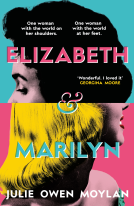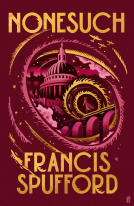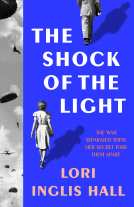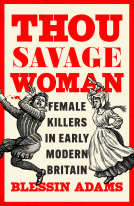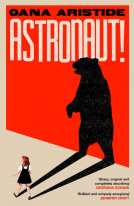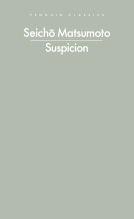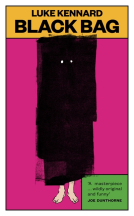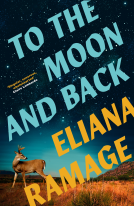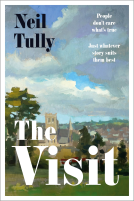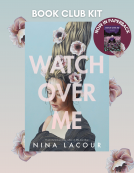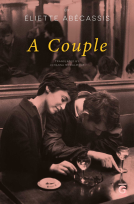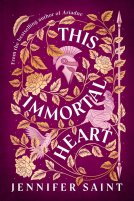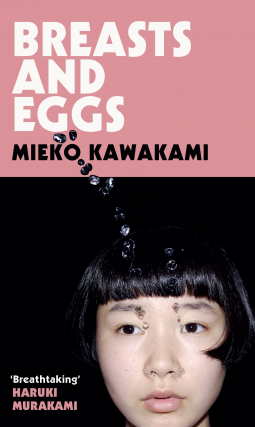
Breasts and Eggs
by Mieko Kawakami
This title was previously available on NetGalley and is now archived.
Send NetGalley books directly to your Kindle or Kindle app
1
To read on a Kindle or Kindle app, please add kindle@netgalley.com as an approved email address to receive files in your Amazon account. Click here for step-by-step instructions.
2
Also find your Kindle email address within your Amazon account, and enter it here.
Pub Date 20 Aug 2020 | Archive Date 19 May 2021
Pan Macmillan | Picador
Talking about this book? Use #BreastsandEggs #NetGalley. More hashtag tips!
Description
'So amazing it took my breath away' Haruki Murakami, international bestselling author of The Wind-Up Bird Chronicles
On a hot summer’s day in a poor suburb of Tokyo we meet three women: thirty-year-old Natsu, her older sister Makiko, and Makiko’s teenage daughter Midoriko. Makiko, an ageing hostess despairing the loss of her looks, has travelled to Tokyo in search of breast enhancement surgery. She's accompanied by Midoriko, who has recently stopped speaking, finding herself unable to deal with her own changing body and her mother’s self-obsession. Her silence dominates Natsu’s rundown apartment, providing a catalyst for each woman to grapple with their own anxieties and their relationships with one another.
Ten years later, we meet Natsu again. She is now a writer and ?nds herself on a journey back to her native city, returning to memories of that summer and her family’s past as she faces her own uncertain future.
In Breasts and Eggs Mieko Kawakami paints a radical and intimate portrait of contemporary working class womanhood in Japan, recounting the heartbreaking journeys of three women in a society where the odds are stacked against them. This is an unforgettable full length English language debut from a major new international talent.
Advance Praise
'So amazing it took my breath away.' HARUKI MURAKAMI
'Mieko Kawakami lobbed a literary grenade into the fusty, male-dominated world of Japanese fiction with 'Chichi to Ran'('Breasts and Eggs') ECONOMIST
'One of Japan’s brightest stars is set to explode across the global skies of literature . . . Kawakami is both a writer’s writer and an entertainer, a thinker and constantly evolving stylist who manages to be highly readable and immensely popular.' JAPAN TIMES
‘What a Catherine wheel of talent she is, how unplaceable and unique.’ John Freeman, LIT HUB
'As if traced before our eyes, objects close at hand are rendered with uncommon precision. An incredible display of nonchalance backed by careful diction.' YOKO OGAWA
Available Editions
| EDITION | Other Format |
| ISBN | 9781509898206 |
| PRICE | £14.99 (GBP) |
| PAGES | 320 |
Average rating from 78 members
Featured Reviews
 Tim D, Reviewer
Tim D, Reviewer
I wish to thank Pan Macmillan and NetGalley for the ARC of Breasts and Eggs in exchange for an honest review.
Mieko Kawakami, many thanks to you for writing this important and thought-provoking novel.
This is an expanded version of the original prize winning novella. It is written in two parts, I read the first, then took a break giving some time to absorb and process what I’d read. Mieko’s writing is skillful, developing the characters superbly; it is written with intelligence and is unique in style. The literature is indeed thought-provoking, broaching the subjects of exploitation and poverty. There is humour within the dialogue and the story is uplifting as relationships between the characters intertwine.
The first part of the novel portrays the life of Natsuko, our narrator, a thirty something women living alone in Tokyo. She is visited by her sister Makiko and teenage niece Midoriko. Makiko works as a hostess in a bar in Osaka; she’s visiting Tokyo to explore breast augmentation surgery. Midoriko is coming to terms with her changing body as she enters puberty; she is angry with her mother and will not speak to her, communicating only through written word. Exerts from Midoriko’s journal describe her anxiety resulting from peer influence, her changing body and the relationships with her mother. The dynamic between the three characters is cleverly crafted.
The second part of the novel is set eight years after the first. Natsuko has enjoyed success as a writer and is no longer burdened by poverty; she feels insecure in her writing striving to be better. Natsuko begins to explore her desire to become a mother. She explores sperm donation and single motherhood, an unsatisfying relationships has caused Natsuko to regard sex as unpleasant. Artificial insemination is not legally available to single women in Japan which leads to the examination of reproductive ethics; Mieko does this with great insight.
This novel has received approval from prominent authors and is critically acclaimed; I believe it deserves the praise. I highly recommend this book.
Breasts and Eggs is a novel about a Japanese woman at two points in her life, looking at womanhood, the female body, and class. Natsu lives in Tokyo where she's trying to make it as a writer when her sister Makiko comes to visit from Osaka, their hometown, with her teenage daughter Midoriko who has stopped speaking to her. Makiko is obsessed with getting breast enhancement surgery, and the relationships between the three women are shown over the few days that Makiko and Midoriko are in town. And then ten years later, Natsu is still in Tokyo but has more success as a writer, and finds herself dreaming of pregnancy and artificial insemination.
The book is split into two sections: the first, shorter one, which was apparently a novella originally, and the the second longer one. Though the second part does drag a bit at times, the two parts do work well together to compare different issues and elements of womanhood and motherhood, as well as Natsu and Makiko's childhood which saw them always desperate for money and food. Moments of female shock and trauma mix with weird descriptions of body parts to highlight ways in which women can be alien from their own bodies. The atmosphere of the first part, with the silent Midoriko having voice through interspersed journal entries, is particularly tense and intimate, and the ending of the second part really brought back comparisons with the first section.
This is an interesting look at gender and class in Japan, and at how female bodies are treated, that considers ideas of beauty standards, culturally accepted ways of having children, and regional voices and experiences. It is more of an experience than a gripping read as you follow Natsu's thoughts and life, but it creates a very vivid picture of her life.
 Alan M, Bookseller
Alan M, Bookseller
This expanded edition of the original novella 'Breasts and Eggs' is a welcome addition to the body of Japanese literature available in English translation. And it's Mieko Kawakami, right, so you know it's going to be good.
Part One tells of a three day visit to Tokyo by our narrator's sister and niece. Makiko's daughter, Midoriko, hasn't spoken in months, resorting to writing in a notebook to communicate. Natsuko, our narrator and an aspiring writer, has had a series of jobs. Over the course of the three days they talk, argue and spend time together in a series of set-piece visits to a bathhouse and a Chinese restaurant, amongst others. Part Two picks up the story some ten years later as Natsuko is pondering the idea of getting pregnant by artificial insemination. As her story develops, and she battles with her dreams of becoming a successful writer, her relationships with friends and family become consumed with discussions about the role of women in modern-day Japan, their relationships to their own bodies and male-centric concepts of women.
Part One, the original novella, is a powerful piece of writing on its own, and it took me a while to get into Part Two. It felt disconnected from the first section, somehow, and just didn't flow as well. The situations became increasingly obvious as metaphors: Natsuko's struggle with writing her novel becomes a metaphor for her desire to 'create' another human life, and she returns to the family home in Osaka for the first time for nearly 20 years and has a moment of epiphany. The ending, when it comes, is so not a surprise!
Saying that, this is a powerful and moving piece of fiction, giving voice to ideas and images of the female body that are all too missing from a lot of contemporary fiction. Kawakami cements her position as an important modern writer, and this is definitely a must-read, despite its slight flaws. 4 stars.
(With thanks to the publisher and NetGalley for an ARC of this title.)
 Reviewer 627462
Reviewer 627462
A really interesting and different book. I enjoyed this read a lot and would love to see more works from Mieko Kawakami.
Thank you Netgalley for providing an arc of this book for an honest review.
 Reviewer 681874
Reviewer 681874
A bold and beautiful feminist story of three Japanese woman. Their stories depict how social stigmata affects a woman's life and her choices. It was an in read. A must read book for everyone.
 Kelly F, Reviewer
Kelly F, Reviewer
In this book Kawakami explores female identity in contemporary Japan. While Motherhood is a central theme, body image, physicality and sexuality are all explored. The main focus of the story is of three women. The thirty year old unmarried narrator Natsu, older sister Makiko, and Makiko’s daughter Midoriko.
Unable to come to terms with her changed body after giving birth, Makiko becomes obsessed with the prospect of getting breast enhancement surgery. Meanwhile, her twelve year old daughter Midoriko is fearing puberty and growing up. The narrator struggles with her lack of identity of being neither a daughter nor a mother. Fast forward ten years and Natsu is contemplating having a child alone.
Throughout the book we learn of the struggles of women. Marriage, relationships, work, money, childcare, family, poverty, domestic violence, alcohol, sex and the tensions of life. Breasts and Eggs took these broad subjects from a time of repression of women in Japan and showed the liberation.
Unlike Murakami I wouldn't say it " Took my breath away" but I enjoyed the detail, the public baths, restaurants, food, theme park, buildings, shops and weather it all made it atmospheric and the characterisation was great and I really warmed to Natsu.
A book I would recommend to anyone that enjoys reading about other cultures and fans of this genre.
My thanks go to the publishers, author and Netgalley in providing me with this arc in return for a honest review
 Media/Journalist 626287
Media/Journalist 626287
From the first sentence this book is outstanding. I felt like I was there in the apartment with Natsu, Makiko and Midoriko (her journal entries were heartbreaking) and the detail and observations were just incredible. The build up of atmosphere and anxiety was done so brilliantly, and I enjoyed the skip to a later date to find out more about what was happening to them all. I was totally gripped. Thank you so much for the review copy. I'll be posting five star reviews on other sites, and buying everything I can by Mieko Kawakami.
 Reviewer 443098
Reviewer 443098
I was so delighted to be sent this @picador proof of Breasts and Eggs by Mieko Kawakami (translated by Sam Bett and David Boyd.) I had seen rave reviews on Twitter and knew that it would be something special. When I did a bit of digging, I learned that the first half of the book had been published as a standalone novella, which makes a lot of sense as it seems to have quite a sense of finality about it. In the first section, Natsuko, the narrator, is visited by her sister and niece. Her sister, Makiko, has become obsessed with breast enhancement surgery and her niece has become selectively mute since her body began to go through puberty. There is a lot in this book about male gaze-femininity and bodies, but I actually found the most interesting thing about this first section to be about class. Kawakami explores the working class of Tokyo through Makiko in particular, who has worked as a hostess for years. There are some really great parts about a woman who runs a “fake” Chanel shop that just a shop with the double C logo on everything. I think this section was among my favourites in the novel, as I actually recently listened to a podcast about logos and how they represent various sections of society (Articles of Interest, episode 8, if you are interested!). The second section (Eggs!) is set ten years later and follows Natsuko’s desire to become a mother, so there is a lot on artificial insemination and other medical issues. In all, an excellent book. I think it’s the longest translated book I have ever read, and it was brilliant. #breastsandeggs #miekokawakami #picadorbooks
Breasts and Eggs is a novel of two parts. In the first part, Natsu is in her twenties, holding down a low paying job in Tokyo while struggling to become a writer. Her sister, Makiko, and her selective-mute niece, Midoriko, visit from Osaka so that Makiko can attend an appointment with a breast-enhancement clinic. In the second part, Natsu is in her thirties, doing a little better financially but not in a relationship, yearning to become a mother herself and considering using a sperm bank. Both parts are beautifully written: the first part is pacier whereas the second part is looser and gives more space for character development.
I loved the voice of Natsu, she felt very real and her thoughts and reactions built a strong picture of her character. Now I’ve finished the book, I miss her.
This is the second book I’ve read by Mieko Kawakami and I will look out for more.
Thanks to the author, publisher and NetGalley for providing a review copy in exchange for honest feedback.
 review b, Bookseller
review b, Bookseller
Loved this book. Ordinary women's ordinary lives in ordinary Japan. Female interiority given full voice. Wonderful.
 Reviewer 526728
Reviewer 526728
This was such an eye-opening read. A glimpse into a world I didn't really know existed and had seldom thought about - breathtaking.
 Reviewer 692344
Reviewer 692344
I loved this book. The characters are all so well-developed, I could really relate to them - it just felt real. The book is written in two connected parts, and gives a sense of time moving and the main character (and her sister, in particular)'s lives and priorities evolving and changing at a pace that is realistic. It's not an action-packed book, but it describes life realistically. Would definitely recommend.
 Book Trade Professional 480287
Book Trade Professional 480287
I’ve just finished reading Breasts and Eggs and I can’t stop thinking about it. In this book Kawakami effortlessly covers common and complex behaviours and emotions felt by women of all ages. She explores the lived experiences of period poverty, body dysmorphia, child free women, artificial insemination, single mothers, postpartum depression, the children of sperm donors, loveless marriages, family obligation and more, and as the book progresses you naturally become aware of how vocal men are within the dialogue of women’s fertility. She raises more complex conversations about whether, given our differences, women should live with men at all. Is giving birth a purely selfish concept? When offering advice, might your own lived experience often be irrelevant? The breadth of topics covered and the simple way they are interwoven within the story is extraordinary. I saw myself and my peers reflected throughout. If you enjoy exploring what it means to be a woman today, you may find that Breast and Eggs is just the ticket.
 megan h, Reviewer
megan h, Reviewer
Breasts and Eggs is an absolutely exceptional book that examines womanhood from many different perspectives - from the ways that we view our bodies and how they change over time, the relationships we have with one another, having children, and different ways of conceiving. Kawakami successfully bridges generations of women with different views and examines this topic in detail without it ever seeming dry or so explicit that it detracts from the story. I've always enjoyed reading Japanese literature, and stylistically it reminded me of Murakami. It was refreshing to read a book that felt modern, encapsulating what it is to be a woman in Japan today. One of the best books I've read this year.
A novel in two parts, Breasts and Eggs is narrated by Natsuko, a 31-year-old bookshop worker. The first section is set in 2008 when Natsuko’s sister Makiko and her teenage daughter, Midoriko, come to visit Natsuko in Tokyo. Makiko’s on the verge of 40 and contemplating breast implants. 13-year-old Midoriko hasn’t spoken to her mother for more than six months, writing notes on a pad instead. She keeps a journal which we’re privy to from the early stages of the book which reveals that Midoriko is concerned about puberty and the expectations placed on women. She’s also angry at her mother for wanting the implants. Natsuko is concerned about her sister, who ‘literally looked old’. The two women grew up in poverty and now Makiko works as a hostess in a bar. The strain of work and her daughter not speaking to her is clearly taking its toll on Makiko. Inevitably the tension builds and there’s a superb set piece towards the end of the section involving actual eggs.
In the second half of the novel, Natsuko is thirty-eight. Since the end of part one, she’s become a successful writer with a best-selling short story collection. Now she’s working on a novel and struggling to believe that she’s gone from poverty to full-time writer. She’s also wondering whether she wants to spend the rest of her life alone. This is partly a question of relationships but largely of whether or not she wants a child. Natsuko’s almost certain she’s asexual (although she never uses the term) and this further complicates the issue. In an attempt to find an answer, she begins to research fertility treatment and makes some unexpected discoveries.
Breasts and Eggs was a best-seller in Japan and has been described as ‘a literary grenade’, partly, I’m sure, because Kawakami so brilliantly sends up the middle-class male-dominated literary scene. There’s a brilliant set piece at a literary event which introduces another female writer, Rika Yusa, who has no time for the big male writers and no qualms about telling them. But what sets the book apart is its focus on three working-class women and their lives. Kawakami writes about money and the impact having so little has on someone’s life; she considers the long-lasting effects of growing up poor; she examines what it is to be a woman from a range of perspectives creating space for single mothers, for those who chose to remain child-free, and for a woman who’s asexual, therefore making room for so many different varieties of womanhood. Breasts and Eggs is a breath of fresh air. I loved it.
Readers who liked this book also liked:
Julie Owen Moylan
General Fiction (Adult), Historical Fiction, Women's Fiction
